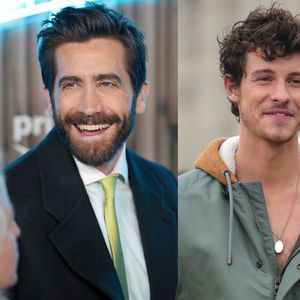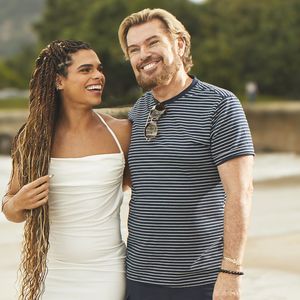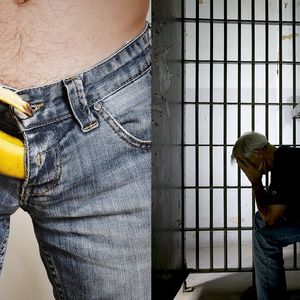
CONTACTStaffCAREER OPPORTUNITIESADVERTISE WITH USPRIVACY POLICYPRIVACY PREFERENCESTERMS OF USELEGAL NOTICE
© 2024 Pride Publishing Inc.
All Rights reserved
All Rights reserved
By continuing to use our site, you agree to our Private Policy and Terms of Use.
The Log Cabin Republicans, nearly six years after first filing a lawsuit against the federal government over "don't ask, don't tell," will deliver opening statements in the U.S. district court for central California Tuesday morning. The attorney representing the organization, Daniel Woods, a partner for global firm Case and White LLP, has provided The Advocate with his opening statement, to be presented in front of Judge Virginia Phillips.
For more information on the case, click here. Follow coverage on the trial on The Advocate's twitter page.
Your Honor, this case involves one of the most pressing civil rights issues in our great country today -- the discrimination against homosexuals by our country's military, authorized by the "don't ask, don't tell" statute, codified at 10 U.S.C. section 654 and its implementing regulations.
Like some heterosexuals, some homosexuals also wish to serve in our country's armed forces. They agree to conform to military standards and values and are prepared to make the ultimate sacrifice, if necessary, to defend our country and the principles for which it stands. The United States Government, however, denies these men and women the privilege of serving their country if they choose to be as candid and honest about their human nature as their heterosexual comrades are. If they wish to serve in our armed forces, homosexuals must conceal the core of their identity, they must lie -- in violation of their honor and duty -- if the subject arises, and they must live under constant threat of investigation and discharge if a hint of the truth is suspected. Our military excludes these men and women from service solely on the basis of status and conduct that is constitutionally protected There is no legitimate basis for "don't ask, don't tell," and there never has been.
In 2003, the Supreme Court permanently altered the legal landscape applicable to "don't ask, don't tell" in Lawrence v. Texas, the implications of which prompted the filing of this action. This Court has now determined that the Witt standard applies to the Fifth Amendment due process claims of Log Cabin Republicans. Under that standard, "when the government attempts to intrude upon the personal and private lives of homosexuals, in a manner that implicates the rights identified in Lawrence, the government must advance an important government interest, the intrusion must significantly further that interest, and the intrusion must be necessary to further that interest." It is indisputable that "don't ask, don't tell" does intrude upon the personal and private lives of homosexuals in a manner that implicates the rights identified in Lawrence. We intend to prove at this trial that "don't ask, don't tell" does not advance an important government interest, that its intrusions into the constitutional rights of homosexuals do not significantly further any important government interest, and that those intrusions are not necessary to further any important government interest.
Before we get to the merits, because the government persists in disputing Log Cabin Republicans' standing to bring this action, we will present evidence of Log Cabin Republicans' standing. Some of our witnesses on standing will testify today to get us started. Because the government will not stipulate that Log Cabin Republicans meets any of the three Hunt factors, we will have Mr. Terry Hamilton, national chairman of Log Cabin Republicans, testify about the organization itself and related issues. We will then introduce testimony from Mr. Philip Bradley about Log Cabin Republicans member Lt. Col. John Doe and, later in the week, will have Mr. Martin Meekins also testify about Lt. Col. Doe's membership. We will also today have Mr. Jamie Ensley testify about Alex Nicholson's membership in Log Cabin Republicans and, a little later in the trial, will have Mr. Nicholson tell his story. We will also introduce a few exhibits relating to standing. This evidence will put the issue of standing to bed, once and for all.
Turning to the merits of Log Cabin Republicans' constitutional challenges to "don't ask, don't tell," we have ample evidence to prove that "don't ask, don't tell" does not meet the Witt standard. First, we will introduce by agreement with the government a number of exhibits. Some of these exhibits are extremely important.
One is exhibit 4, a Navy report commonly known as the Crittenden report. Back in the 1950s, the excuse for excluding homosexuals from military service was that they were security risks. The Crittenden report concluded, however, that there was no factual data to support the contention that homosexuals were a greater security risk than heterosexuals. And so opponents of homosexuals in the military had to come up with other pretextual reasons to exclude them, a practice that continues today.
Another exhibit that will come in by stipulation is a 1988 report from the Defense Personnel Security Research and Education Center, called PERSEREC, exhibit 5. This report pointed to the growing tolerance of homosexuality and concluded that "the military cannot indefinitely isolate itself from the changes occurring in the wider society, of which it is an integral part." It then found that "having a same-gender or an opposite gender orientation is unrelated to job performance in the same way as being left- or right-handed."
We will also offer another PERSEREC report from 1989, exhibit 100, which found "the preponderance of the evidence presented indicates that homosexuals show pre-service suitability-related adjustment that is as good or better than the average heterosexual."
We will also offer exhibit 7, a GAO report from 1993, which studied 29 foreign militaries, with a special focus on Israel, Canada, Germany, and Sweden, and reported that permitting openly homosexuals to serve did not impair the functioning of these foreign militaries. This GAO report concluded that, with respect to Israel, Canada, Sweden, and Germany: "Military officials in all four countries said that the presence of homosexuals in the military is not an issue and has not created problems in the functioning of military units."
Another exhibit that will be admitted by stipulation is exhibit 8, a 1993 RAND report prepared at the request of the Secretary of Defense after President Clinton had announced his desire to lift the ban on homosexual service that existed when he took office in 1993. This extensive inter-disciplinary study by 70 social scientists ultimately concluded as follows:
The team examined a range of potential policy options. Most of the options were judged to be either inconsistent with the President's directive, internally contradictory, or both. Only one policy option was found to be consistent with the findings of this research, with the criteria of the Presidential memorandum, and to be logically and internally consistent. That policy would consider sexual orientation, by itself, as not germane to determining who may serve in the military.
There will be more support for our position in other stipulated exhibits.
We also expect to introduce excerpts from the government's responses to requests for admissions. The admissions include information about the number of individuals discharged under "don't ask, don't tell," including some year-by-year numbers, some eye-popping numbers about the number of women discharged pursuant to ""don't ask, don't tell," and information about the many non-combat occupations held by discharged service members. The admissions also include information about the number of other countries that allow open homosexuals to serve in their armed forces, admissions that homosexuals can openly serve in the FBI, CIA, and NSA and that even the Commander in Chief of our armed forces could be homosexual. They also include admissions as to a number of statements by leading military and political figures, including President Obama. They also include admissions that the government has no evidence to support "don't ask, don't tell" other than its legislative history and admissions that there is no rational basis for prejudice against homosexuals, generally, or against homosexuals serving in the military. There will be other admissions introduced but this gives you a snapshot of them.
We also expect to introduce excerpts from the government's answers to interrogatories, in which the government states that the only evidence of the governmental purposes and interests to be advanced by ""don't ask, don't tell"" is contained in the statute and its legislative history; that the only evidence that "don't ask, don't tell" promotes military readiness is in the statute and legislative history; that the only evidence that "don't ask, don't tell" promotes good order and discipline is in the statute and legislative history; and that the only evidence that "don't ask, don't tell" promotes unit cohesion is in the statute and legislative history.
We also expect to introduce a variety of government documents that will support our presentation. These documents, all produced by the government, will illustrate the history and implementation of "don't ask, don't tell," including the reduced number of discharges in times of war, the number of discharges by occupation, length of service, and gender, as well as information about enlistment waivers. One noteworthy document is exhibit 337, a 1995 letter from the General Counsel to the Department of Defense to a senator, in which she wrote: "A simple promise to refrain from homosexual acts in the future cannot provide a sufficient basis to rebut the presumption." This shows that even celibate homosexuals are not permitted in our country's military.
We will introduce the testimony of several former service members. You have seen a preview of their testimony in the declarations we submitted from them and I am happy to report that all of their depositions have been completed. These witnesses include members of the Army, Navy, and Air Force, include both officers and non-officers, and include career service members, including one who served over 20 years. They received many promotions and awards during their service to our country. Two of them have already testified before Congress this year. Their stories, a small representative sample of the stories of patriotic Americans discharged under "don't ask, don't tell," show that the military discharges service members without regard to their performance of their job duties and that their discharges did not significantly further any important government interest and were not necessary to further any important government interest.
We also expect to offer deposition testimony from three witnesses who testified in response to a Rule 30(b)(6) deposition notice to the defendants. One of them, Dr. Paul Gade, testified on the subject of foreign militaries. In his opinion, the experience of foreign militaries is the best method of evaluating openly homosexual service in our military. He also testified about a number of studies showing that, in countries with militaries comparable to ours, which had bans on homosexual service for the same stated reasons as our country, and which lifted the bans, allowing homosexuals to serve was a non-event, or anti-climactic.
Another 30(b)(6) witness whose deposition testimony we will offer is Dennis Drogo. He testified about the government's waiver program, by which it allows individuals normally ineligible for service due to criminal convictions to enlist in our armed forces. Besides his testimony about the type and number of crimes one may commit and still be allowed to enlist, he explained that the military uses a "whole person" review to evaluate candidates for such waivers and that the military does not employ a "whole person" review to evaluate homosexual candidates.
The third 30(b)(6) witness was Lt. Col. Jamie Brady. He testified as the 30(b)(6) witness for the government on several topics and we expect to introduce portions of his testimony, including the following admissions:
* That the largest category of people separated from service because of "don't ask, don't tell" are people who were never deployed to a combat zone;
* That he was not aware of any reports or studies that show that the application of the policy to non-combat personnel furthers the purposes of "don't ask, don't tell";
* That since the 1993 RAND report, he is not aware of any systematic empirical research that has been conducted by Defendants on the effect of acknowledged homosexuals on unit cohesion or unit performance; and
* That he is not aware of any evidence that "don't ask, don't tell" promotes national security, other than the military judgment of those testified before Congress in 1993.
We also expect to offer the testimony of seven expert witnesses. ou have also seen a preview of the experts' testimony in the briefing on the government's motion in limine to exclude them. They come from different disciplines -- history, psychology, sociology, military affairs, and so on -- and they are all highly qualified, accomplished, and distinguished in their respective fields. From their perspectives in their respective disciplines, they will also provide crucial evidence that "don't ask, don't tell" does not meet the Witt standard. For example, Professor Frank will testify early on in the trial about the history of the enactment of "don't ask, don't tell", and what it reveals, and related subjects. Professor MacCoun, who I am happy to report will be here in person, will testify later on the concept of unit cohesion and explain that it does not provide a legitimate rationale for "don't ask, don't tell." Professor Korb will testify from the military perspective that "don't ask, don't tell" does not further any military objectives. Professor Embser-Herbert will testify that Congress never considered how "don't ask, don't tell" might impact women in the military and about the impact of "don't ask, don't tell" on women in particular. And other experts will also contribute to the court's understanding of why "don't ask, don't tell" does not meet the Witt test.
In addition, we will offer various admissions by government officials. We will present evidence showing that several of the people responsible for "don't ask, don't tell" now realize that it was misguided when enacted and does not accomplish its stated purposes, or have urged that "don't ask, don't tell" be reconsidered.
Most importantly, we will offer evidence of admissions by current government leaders at literally the highest levels of our Armed Forces, both on the military and the civilian command sides. From the military side, these admissions include a sworn statement by the highest ranking military officer in the United States Armed Forces, the President's principal military advisor, Admiral Mike Mullen, the Chairman of the Joint Chiefs of Staff. He testified to the Senate Armed Services Committee on February 10, 2010:
No matter how I look at this issue, I cannot escape being troubled by the fact that we have in place a policy which forces young men and women to lie about who they are in order to defend their fellow citizens. For me personally, it comes down to integrity, theirs as individuals and ours as an institution.
He also sent out a "tweet" shortly thereafter in which he said "Allowing homosexuals to serve openly is the right thing to do. Comes down to integrity." He also testified to the Senate Armed Services Committee in March of this year that he is not aware of any evidence that suggests that repealing "don't ask, don't tell" would undermine unit cohesion.
On the civilian side, the admissions include a statement by defendant Robert Gates, the Secretary of Defense, the principal defense policy advisor to the President, that there is "no basis in fact" for various assertions that have been made to support "don't ask, don't tell".
Finally, we also expect to introduce several admissions by President Obama, the Commander in Chief of our country's armed forces. The President has said, among other statements:
* that "don't ask, don't tell" "doesn't contribute to our national security";
* that "don't ask, don't tell" "weakens our national security"; and
* that reversing "don't ask, don't tell" is "essential for our national security."
In contrast to the ample evidence that we will introduce, the government plans to offer no evidence other than the 1993 legislative history of "don't ask, don't tell". The government will offer no witnesses, either from the military or any branch of the government, to defend "don't ask, don't tell". The government will offer no expert testimony to show that "don't ask, don't tell" advances an important government interest much less that it furthers any important government interest, or that it is necessary to further any such interest. The government will offer no report, no study, no analysis, no book, not a single document, showing that "don't ask, don't tell" advances any important government interest - because there is no such document.
As the trial will progress, the evidence will show by a preponderance of the evidence that "don't ask, don't tell" does not meet the Witt standard and therefore violates the due process clause.
We will also show you in this trial that "don't ask, don't tell" violates the First Amendment. It does so because it inhibits Log Cabin Republicans' members - and all homosexual service members in our armed forces - from communicating the core of their identity and emotions to other. It chills, on pain of investigation and discharge, homosexual service members in our armed forces from speaking out in public on topics of intense public interest, from associating with others of like mind, from participating in political events, rallies, or parades in support of gay rights, and even from criticizing or opposing the biased speech of others. And it prevents homosexual service members in our armed forces from forthrightly bringing these violations to Court for redress, like Col. Doe in this case, because they cannot come and sit in that witness chair under their own name for fear of discharge from the military for doing so. "don't ask, don't tell" does all these things while imposing no restriction on comparable speech and association that involves heterosexual expression, and so it is not viewpoint neutral, again in violation of the First Amendment.
What is more, "don't ask, don't tell" is also unconstitutionally overbroad because it curtails the speech and associational rights of others who are not members of the military. The partners, families, and friends of homosexual service members are also inhibited from communicating and associating with others, because to do so might subject their loved ones to the investigation and discharge that this law requires. "don't ask, don't tell" directly burdens these third parties' constitutionally protected rights of speech, association, and petition, as well as the rights of service members. "don't ask, don't tell" therefore prohibits such a broad range of protected expressive conduct that it is unconstitutional.
Once we have shown that "don't ask, don't tell" violates both the due process clause and the first amendment, this Court's duty is to enter judgment for Log Cabin Republicans, declare "don't ask, don't tell" unconstitutional, and enjoin any future application of "don't ask, don't tell" throughout the United States.
Thank you, Your Honor
Want more breaking equality news & trending entertainment stories?
Check out our NEW 24/7 streaming service: the Advocate Channel!
Download the Advocate Channel App for your mobile phone and your favorite streaming device!
From our Sponsors
Most Popular
Here Are Our 2024 Election Predictions. Will They Come True?
November 07 2023 1:46 PM
17 Celebs Who Are Out & Proud of Their Trans & Nonbinary Kids
November 30 2023 10:41 AM
Meet all 37 of the queer women in this season's WNBA
April 17 2024 11:24 AM
Here Are the 15 Most LGBTQ-Friendly Cities in the U.S.
November 01 2023 5:09 PM
Which State Is the Queerest? These Are the States With the Most LGBTQ+ People
December 11 2023 10:00 AM
These 27 Senate Hearing Room Gay Sex Jokes Are Truly Exquisite
December 17 2023 3:33 PM
10 Cheeky and Homoerotic Photos From Bob Mizer's Nude Films
November 18 2023 10:05 PM
42 Flaming Hot Photos From 2024's Australian Firefighters Calendar
November 10 2023 6:08 PM
These Are the 5 States With the Smallest Percentage of LGBTQ+ People
December 13 2023 9:15 AM
Here are the 15 gayest travel destinations in the world: report
March 26 2024 9:23 AM
Watch Now: Advocate Channel
Trending Stories & News
For more news and videos on advocatechannel.com, click here.
Trending Stories & News
For more news and videos on advocatechannel.com, click here.
Latest Stories
Trans man Tee Arnold shot to death in Florida
April 17 2024 4:41 PM
Can scientific research on the causes of homosexuality be used against LGBTQ+ people?
April 17 2024 4:02 PM
George Takei releases kids' book about his childhood in internment camp
April 17 2024 3:18 PM

PLUS
ExclusivesTodrick Hall on surviving the rumors and remembering where he came from
April 17 2024 2:33 PM

Pride
Yahoo FeedHow The Pride Store celebrates National Tea Day: A tale of two brews
April 17 2024 2:14 PM
'Parents' Rights' movements forget families have the right to read LGBTQ+ books
April 17 2024 10:15 AM
This gay man had to flee Ghana after a violent attack. He’s finally been granted asylum
April 17 2024 9:17 AM















































































